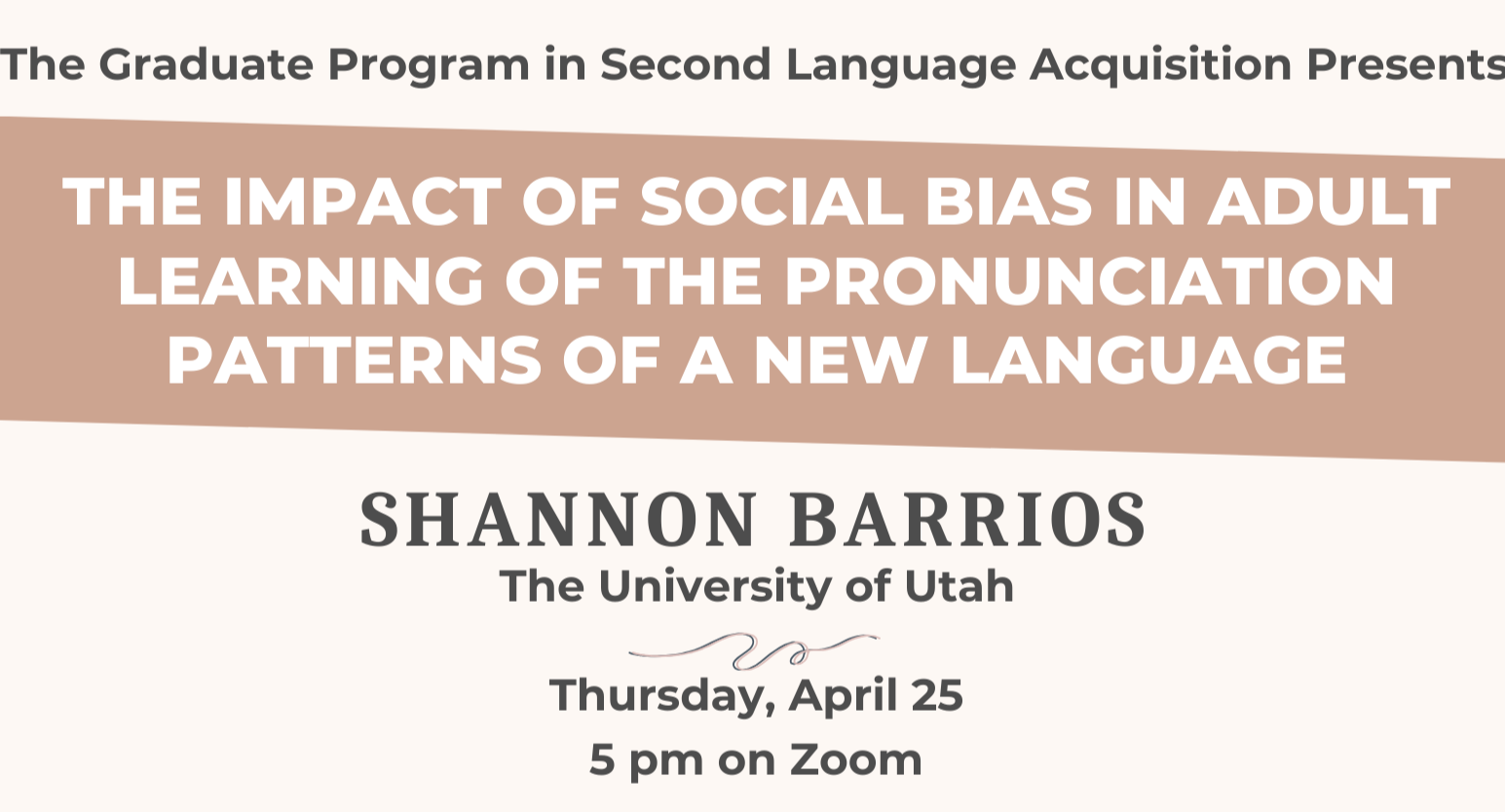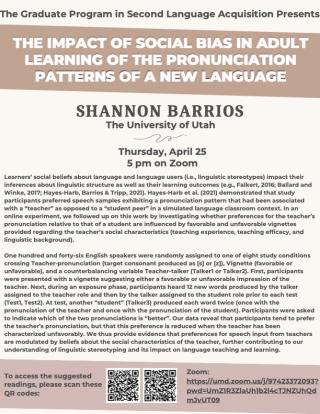SLA Invited Talk "The impact of social bias in adult learning of the pronunciation patterns of a new language"

SLA Invited Talk "The impact of social bias in adult learning of the pronunciation patterns of a new language"
Learners’ social beliefs about language and language users impact their inferences about linguistic structure as well as their learning outcomes. Hayes-Harb et al. (2021) demonstrated that study participants preferred speech samples exhibiting a pronunciation pattern that had been associated with a “teacher” as opposed to a “student peer” in a simulated language classroom context. In an online experiment, we followed up on this work by investigating whether preferences for the teacher’s pronunciation relative to that of a student are influenced by favorable and unfavorable vignettes provided regarding the teacher’s social characteristics (teaching experience, teaching efficacy, and linguistic background).
One hundred and forty-six English speakers were randomly assigned to one of eight study conditions crossing Teacher-pronunciation, and a counterbalancing variable Teacher-talker (Talker1 or Talker2). First, participants were presented with a vignette suggesting either a favorable or unfavorable impression of the teacher. Next, during an exposure phase, participants heard 12 new words produced by the talker assigned to the teacher role and then by the talker assigned to the student role prior to each test (Test1, Test2). At test, another “student” (Talker3) produced each word twice (once with the pronunciation of the teacher and once with the pronunciation of the student). Participants were asked to indicate which of the two pronunciations is “better". Our data reveal that participants tend to prefer the teacher’s pronunciation, but that this preference is reduced when the teacher has been characterized unfavorably. We thus provide evidence that preferences for speech input from teachers are modulated by beliefs about the social characteristics of the teacher, further contributing to our understanding of linguistic stereotyping and its impact on language teaching and learning.
Readings:
Barrios, S., & Hayes-Harb, R. (2021). L2 processing of words containing English /æ/-/ɛ/ and /l/-/ɹ/ contrasts, and the uses and limits of the auditory lexical decision task for understanding the locus of difficulty. Frontiers in Communication, 6:689470.
Hayes-Harb, R., Barrios, S. L., & Tripp, A. (2022). Whose input matters?: The influence of socially-differentiated input sources in adult Lx phonetic learning. Journal of Second Language Pronunciation, 8(3), 363–388.
Join us on Zoom.


